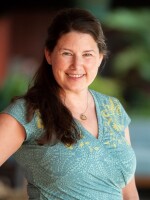During the 2020 Presidential election, then Democratic candidate Elizabeth Warren proposed forgiving up to $50,000 of student debt for 95% of student borrowers, approximately 42 million people. On the campaign trail candidate Joe Biden promised a more modest but still substantial plan to forgive up to $10,000 of student debt. As yet there has been neither legislative nor executive action to advance the student debt forgiveness agenda.
But the Washington Post recently reported that the White House is close to releasing a proposal to cancel that $10,000 of student debt. According to the Post,
“The White House’s latest plans called for limiting debt forgiveness to Americans who earned less than $150,000 in the previous year, or less than $300,000 for married couples filing jointly, two of the people said.”
It is a fundamental aspect of legal systems dating back to Biblical times that in most cases when you take out a loan you are expected to pay it back. So what is it about student loans that is moving at least some political leaders to call for widespread loan forgiveness? How much student debt is out there and who owes the money? What are the implications for taxpayers and for the future of higher education if the current forgiveness proposal is adopted?
Over the next two weeks, we will explore the issue of loan forgiveness from two very different perspectives. This week we are joined by Beth Akers, a Senior Fellow with the American Enterprise Institute, a preeminent center right think tank. Dr. Akers is a leading scholar in the economics of higher education. Next week we will be joined by Marshall Steinbaum of the University of Utah who will bring a more liberal perspective.




